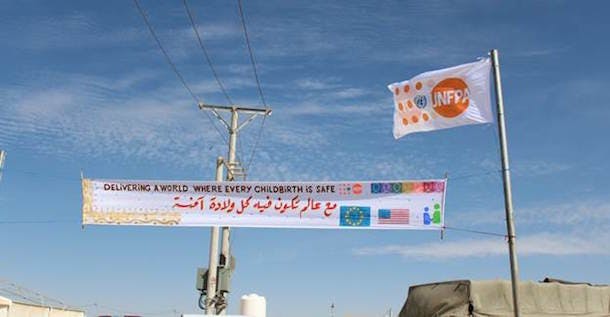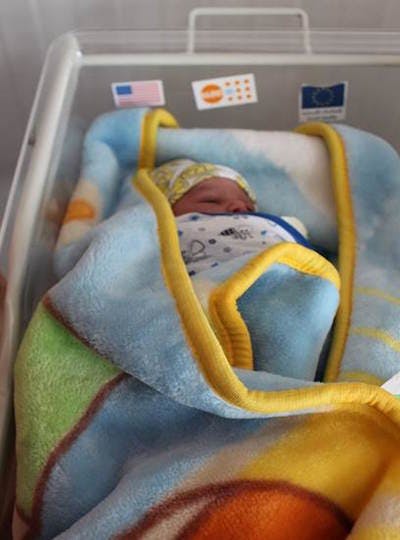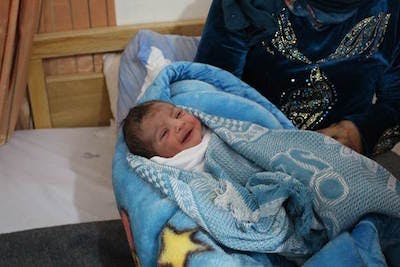Being pregnant can be an uncertain and stressful time for anyone, but imagine being pregnant in the midst of the largest humanitarian crisis of our time. That’s the reality for the more than 16,000 Syrian refugees in Jordan who are pregnant at any one time.
These women face a greatly increased risk of injury or death – 60% of preventable maternal deaths occur in humanitarian settings, often because they face barriers to accessing essential maternal health services.
No woman should die giving life. That’s what drives the 10 doctors and 17 midwives at a women’s clinic in the Zaatari camp for refugees in Jordan. The Comprehensive Women’s Center, supported by UNFPA, is open 24/7 to meet the demand. The center has seen more than 5,000 births, and not a single maternal death. On average, the clinic handles 6-10 regular births per day.

While I was at the Zaatari camp, I spoke to three women who had just given birth about their experiences and their dreams for their new babies.
Meet Fatma and Baby Muhammad

Fatma, 19 years old, had just given birth to her first child, a boy named Muhammad. She married her husband a year ago in Zaatari. When she found out that she was pregnant, she began monthly check-ups at the clinic. She also received counseling on vaccinations and breastfeeding from the midwives.
“The atmosphere here has encouraged me. I feel relaxed and safe,” she said.
When she is ready, she will also receive counseling about family planning services. She said, “I want two or three years between children. I want counseling with my husband to decide our best option.”
When asked about her dream for her child, she said, “I hope for a normal life of peace. I want him to continue his education.”
Meet Hanan and Her Son

Hanan, 19 years old, has been in Zaatari for two years. She had just given birth to her son, her second child. Her first son was born in Syria, before she fled with her family.
“My first baby, I had home delivery with my neighbor. Now as soon as I found out I was pregnant, I came to the clinic for antenatal care,” she said.
Although her entire family is now in Zaatari, she dreams of going home. “I just want a bright, stable, safe future for my family.”
Meet Fatma and Her Daughter

Fatma, 20 years old, has also been in Zaatari for two years. She had just given birth to her first child, a baby girl, with her husband of one and a half years. Her delivery was her first visit to the clinic, but she plans on utilizing the clinic for breastfeeding counseling. She dreams of having two children, but desperately wants to be reunited with her family, who are all still in Syria.
When asked about her dream for her daughter, she replied, “My dream for her is to go home to Syria.”
These women are a reminder that although they face unique challenges, the dreams of mothers are universal. Every mother wants her child to be healthy, safe, and educated. And every mother deserves the right to a safe and respectful birth.
Join me in supporting the work of UNFPA so mothers like those in Zaatari can have access to the services they need and deserve. You can also donate to UNFPA’s work with refugees here.
[Photos: Rachel Moynihan/UNFPA]



 View All Blog Posts
View All Blog Posts